Welcome to the EU web archive. This archive preserves the content and design of the websites of the EU institutions, agencies and bodies (the EU institutions).
More and more EU information is only made available on the web. However, web content often has a short lifespan and web technologies evolve quickly. This puts information at risk of getting lost when websites are substantially changed or taken offline.
To prevent such risk, in 2013, the Historical Archives of the European Union started to preserve the websites of the EU institutions and in 2018, the Publications Office of the EU (OP) took over this tasks and created the EU web archive service.
With the EU web archive, the information provided by the EU institutions on their websites stays available, even if the original site or page has fully or partially disappeared.
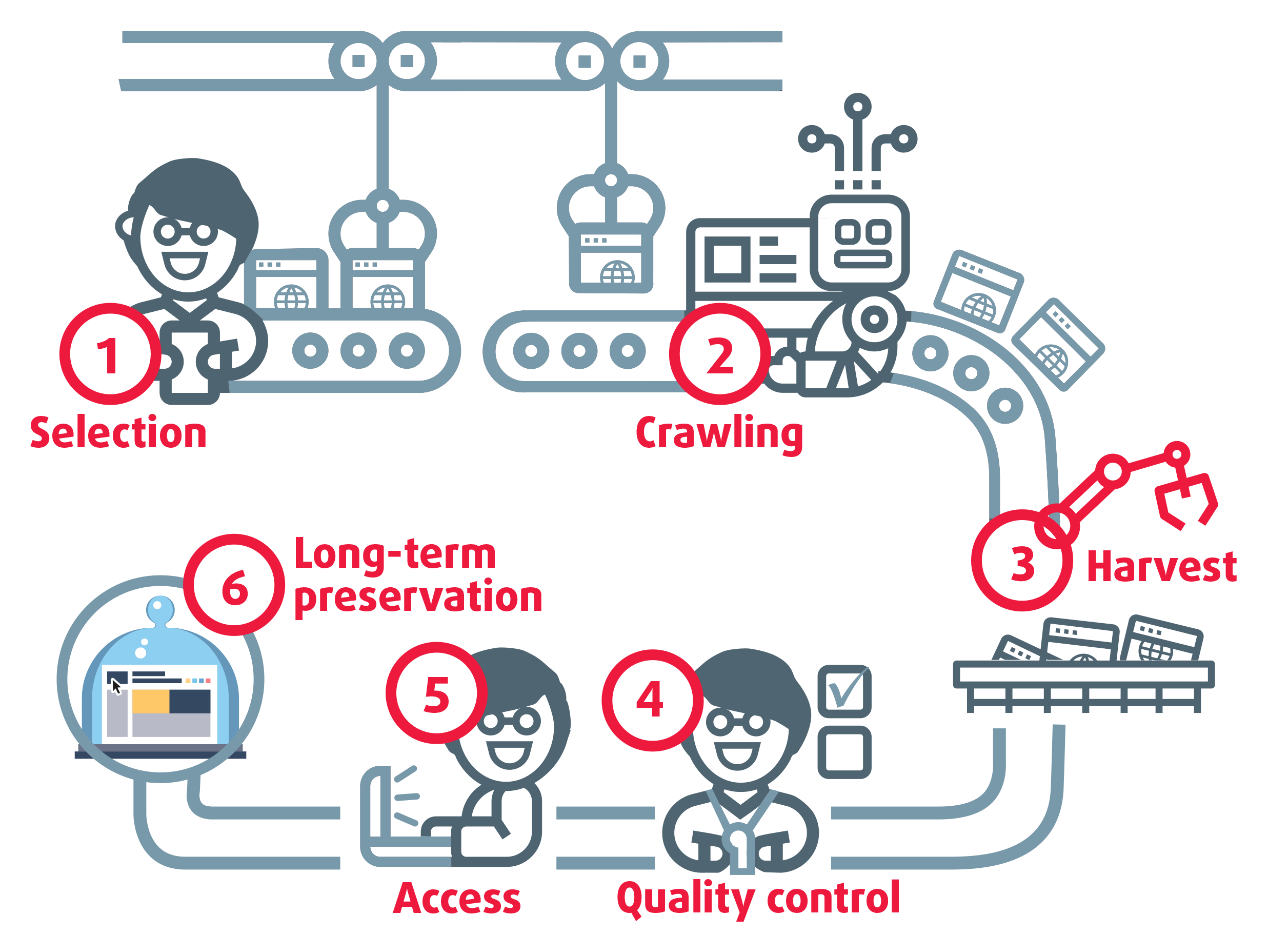
About the EU web archive
Archived websites are grouped in collections. There are five thematic collections currently available. The principal among them, European Union, compiles 250 websites hosted on the europa.eu domain. These websites are captured regularly and the archive displays different versions of each website with corresponding creation dates. By browsing the archived versions, the user can view the content as it was available at a specific date, and follow its evolution through time. Other four collections feature Brexit archive, Horizon 2020, Presidencies of the Council of the EU and Publications. We also archive pages on request when websites are going to be taken out or revamped. In these cases, we keep a final archive before the content disappears.
We always capture websites in all the available language versions. Here are some statistical figures:
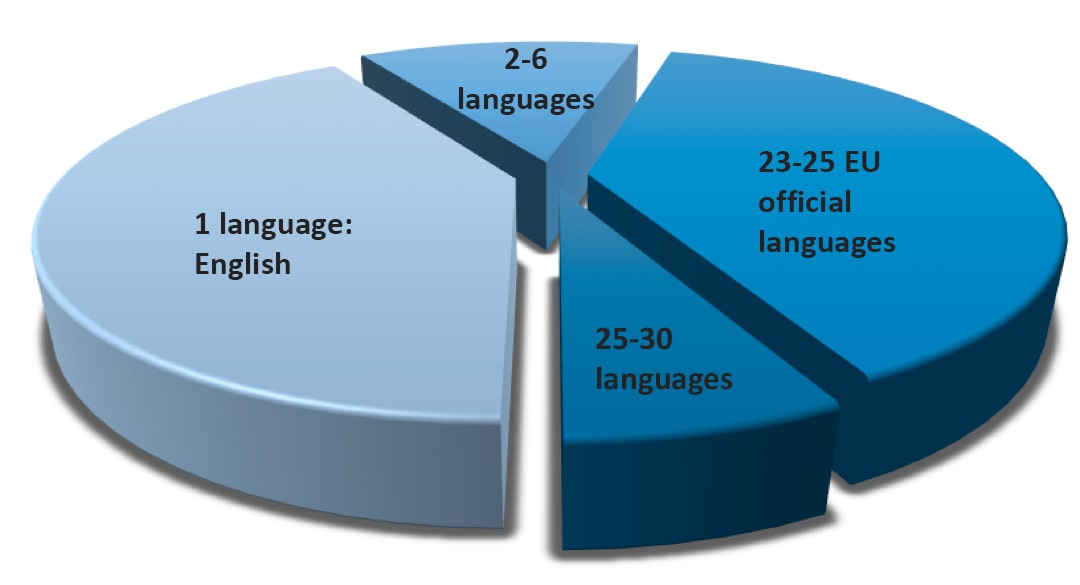
- 41% of the archived websites are only available in English. These are typically pages with content that is frequently updated or has a short lifespan.
- 39% of the archived sites are available in 23 or 24 languages versions. These are websites dedicated to general information that include official documents and EU policies.
- 13% of the archived sites are available in several language versions. The working languages, English, French and German, are often coupled with other versions, usually Italian, Polish and/or Spanish.
- 7% of the archived sites are available in 25 or more linguistic versions. This occurs when the content or target audience go beyond the borders of the European Union. Typically, this concerns topics such as migration, culture or environment.
The archive also gives access to single collections, e.g. publications in HTML format, websites dedicated to COVID-19 or websites created in the framework of the Horizon 2020 research programmes.
How to use the EU web archive
Search the EU web archive by one or several keywords, or apply filters. Each collection features a list of links to the sites archived inside it, arranged in alphabetical order. From the collection-page, you can browse or search through the archived sites.
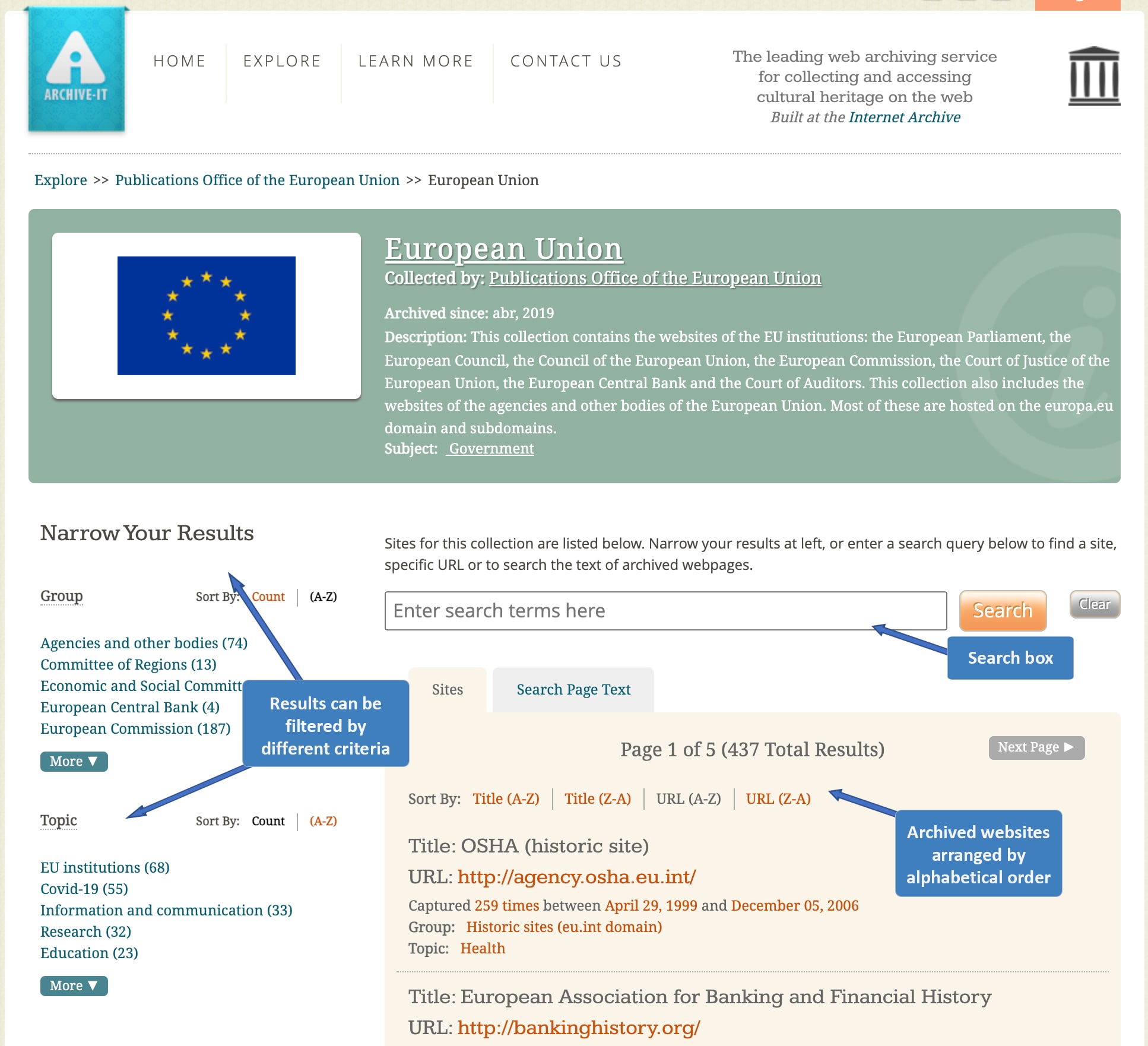
Clicking on the title of an archived website will take you to the selected site's ‘calendar’ page. This page lists the archived versions, sorted in chronological order. A link to the currently available ‘live’ version of the website is also included. This can be useful, e.g., for obtaining up-to-date contact information, as details in the archived content may no longer be accurate. Please note that the live website may no longer exist, or may not have been updated since the latest archiving date.
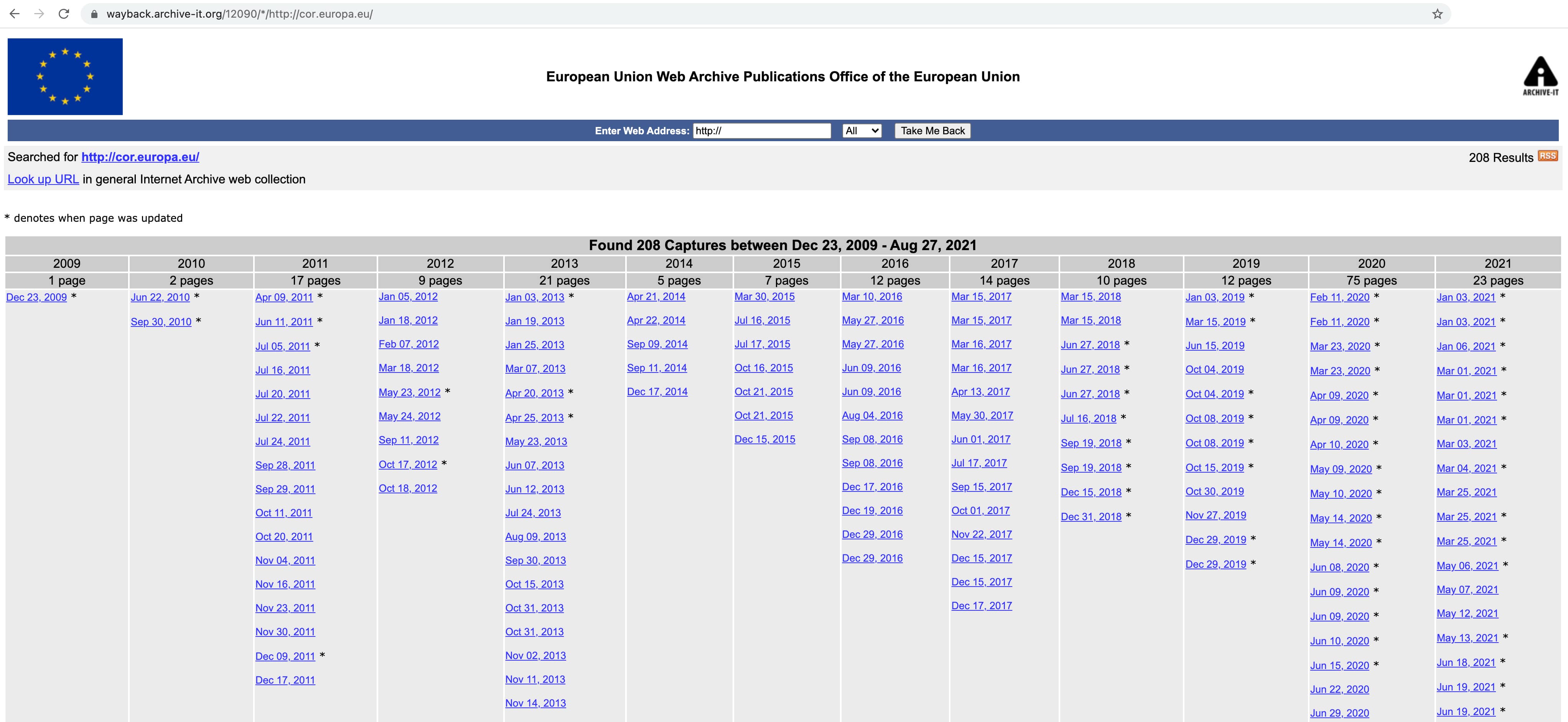
An asterisk (*) next to the capture date indicates that the document has changed since it was last crawled. If there is no asterisk, the document has not changed since the previous capture.
Clicking on a date on the calendar page will lead you to the website, as it was available on the given date. You can then browse the site as if it was ‘live’. The banner at the top of the displayed page indicates the date and time of the website capture.
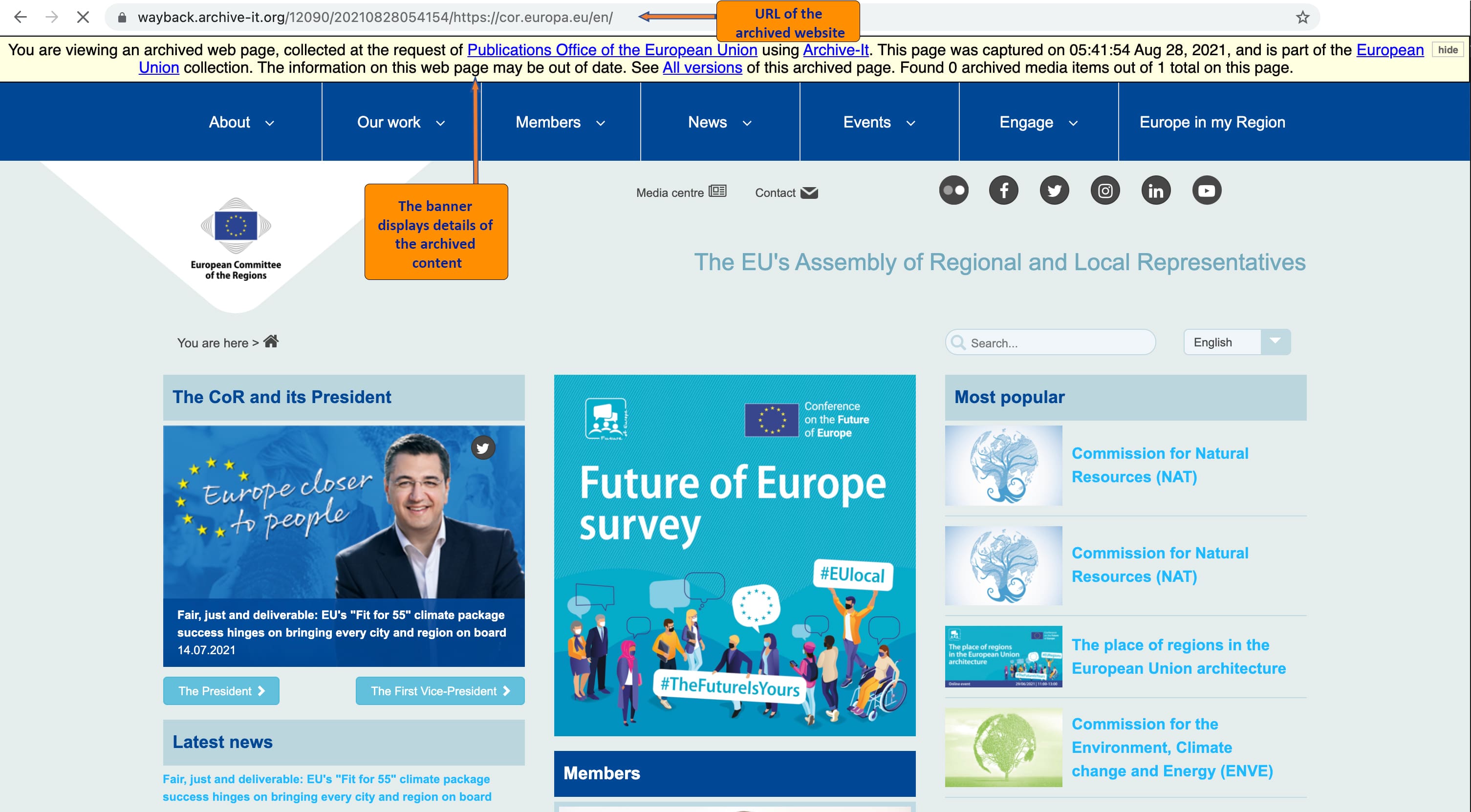
Disclaimer: The primary purpose of web archiving is to track the evolution of the websites, creating a representative memory of each one, but not to preserve content at a granular level or to keep trace of every single change made on the websites.